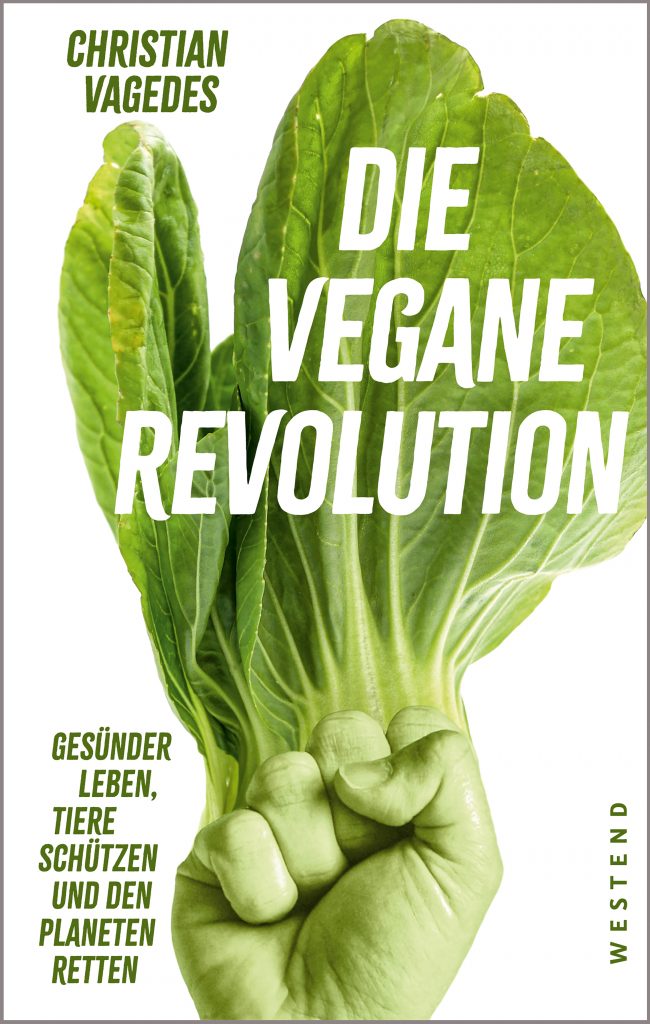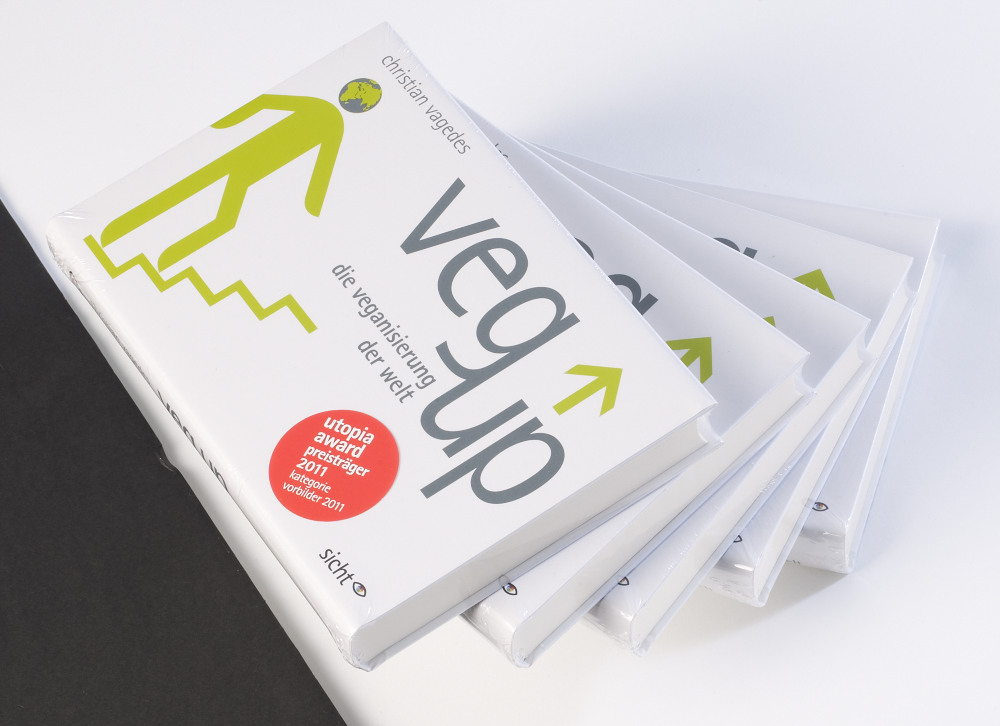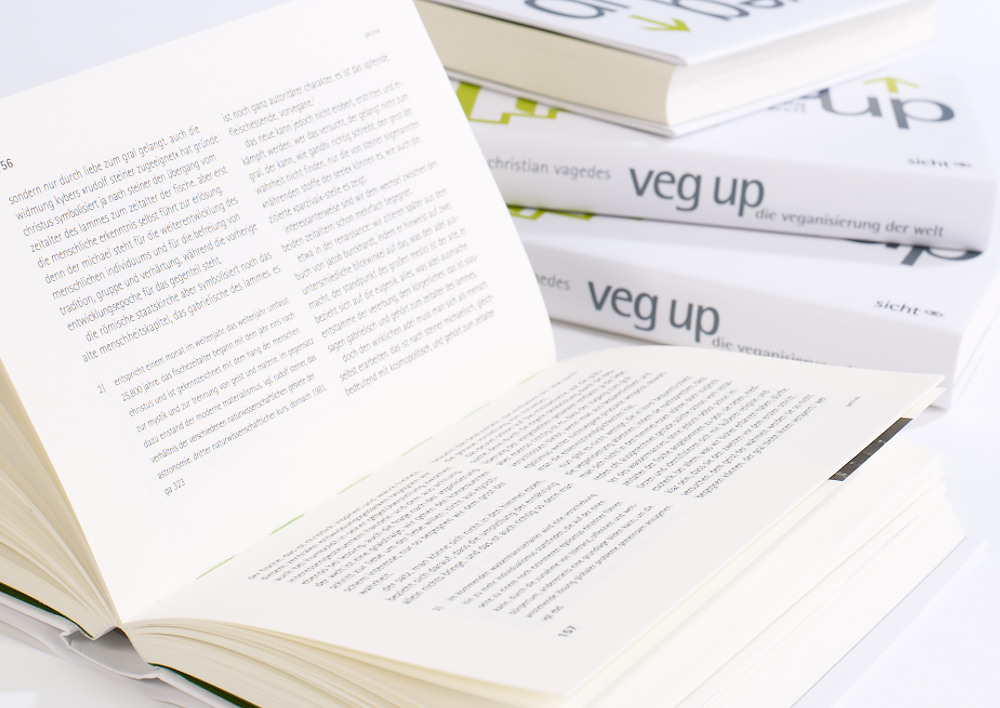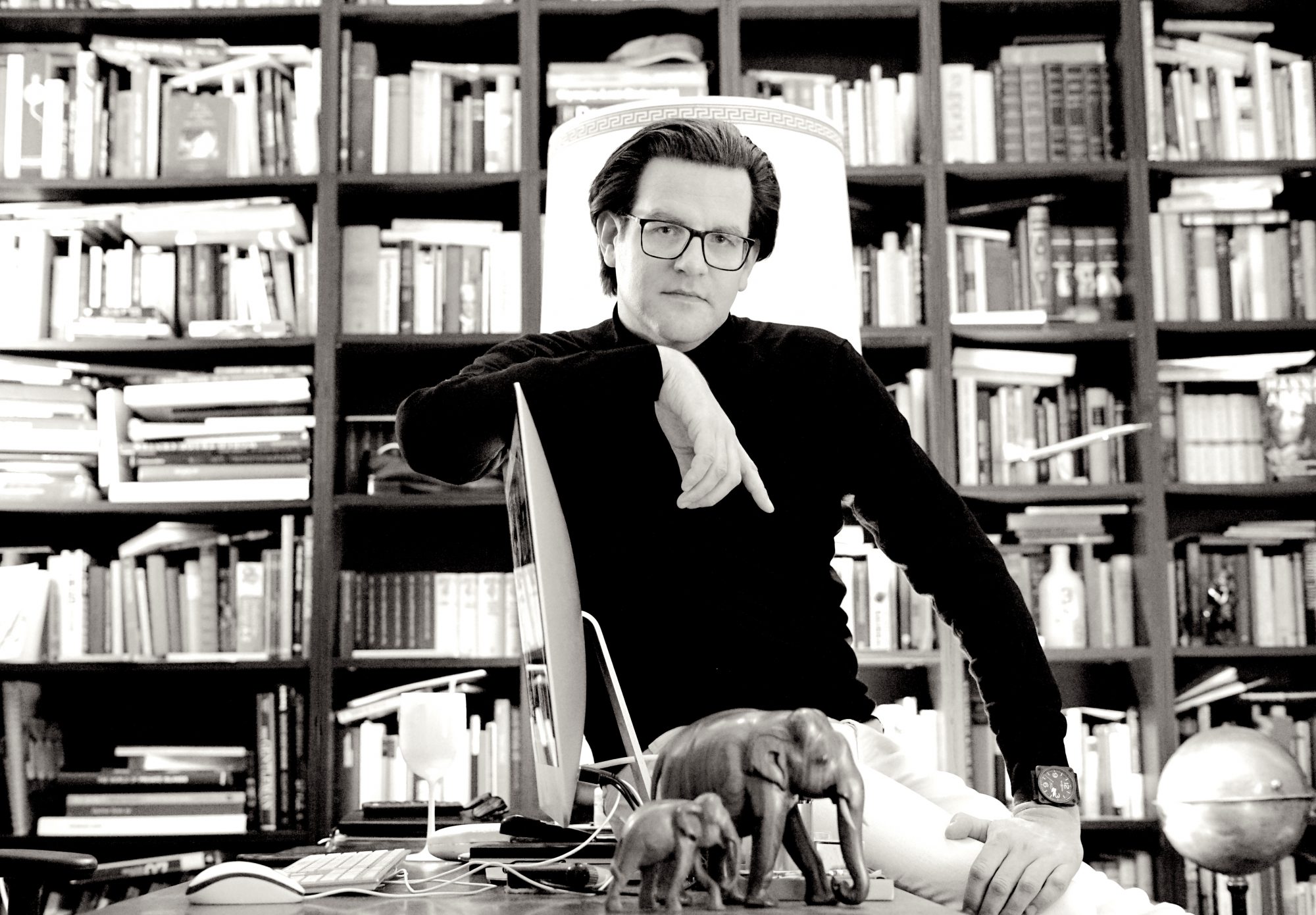
DEUTSCH / ENGLISH
+++ Im Frühjahr 2021 erscheint »DIE VEGANE REVOLUTION«, das neue Buch von Christian Vagedes bei WESTEND. +++
Den Beitrag »Vegan – hipper Food-Trend oder Weltrettungsprogramm?« von Christian Vagedes auf der Debatten-Plattform Causa vom Tagesspiegel jetzt lesen
Christian Vagedes ist Autor des Buches: »veg up. die veganisierung der welt«.
Dazu schrieb der Deutschlandfunk:
»Gandhi, Tolstoi, Steiner, Morgenstern, Darwin – mit ihren Gedanken und Appellen für einen respektvollen und verantwortungsbewussten Umgang mit Tieren gehören sie zu den Wegbereitern einer veganen Lebenskultur. Autor Christian Vagedes präsentiert weitgehend unbekannte Quellen aus Philosophie, Geschichte und Anthropologie, klärt über tradierte Missverständnisse aus Religion, Wissenschaft und Wirtschaft auf, die die ›Vernutzung‹ tierischer Lebewesen zu rechtfertigen suchen, und plädiert für eine neue (alte) Mensch-Tier Beziehung.«
Das Börsenblatt, Fachhandelsmagazin des deutschen Buchhandels schrieb über »veg up«: »Ein besonderer Weckruf«.

Atheistische Aktivisten wetterten heftig gegen das Buch, da es neben wissenschaftlichen Sichtweisen auch spirituelle widerspiegelt. Der Autor zeigt, dass die von Arnold Toynbee ausgegebene Zukunftsformel »Liebe statt Kampf« auch von Persönlichkeiten wie Rudolf Steiner, Martinus Thomsen, Leo Tolstoi und Mahatma Gandhi geteilt wurde und die sogenannte »Suche nach dem Gral« eng mit der Formel verbunden ist und bereits in ähnlichen Worten in Wolfram von Eschenbachs »Parzival« auftaucht. Was als zukünftige positive Entwicklung der Menschen hin zu mehr Empathie beschrieben wird, deuteten manche dieser Kritiker als zu »religiös«, dabei zeigt der Autor »nur«, dass die grundsätzlichen Fragen unserer Zivilisation letztlich auch alle Bereiche des Denkens betreffen – und es keine Denkverbote geben kann, um sich dem vollständigen Verständnis einer zukünftigen Lösung zu nähern.
Der Autor weist zum Beispiel nach, dass Rudolf Steiner das christliche Abendmahl als »Symbol für den Übergang von der tierischen zur pflanzlichen Nahrung« bezeichnete und schon in der Thora eindeutige Hinweise auf die Vorteile einer rein pflanzlichen Ernährung stehen, insbesondere in ihrer Auswirkung auf den menschlichen Geist.

Das Buch wurde in konsequenter Kleinschreibung gesetzt und in einem innovativen Querformat gedruckt – als erstes Hardcoverbuch komplett ohne tierischen Knochenleim.
ENGLISH:
Christian Vagedes is author of the book Veg Up: Die Veganisierung der Welt [Veg Up: The Veganization of the World].
Deutschlandfunk commented on the book as follows:
“Gandhi, Tolstoy, Steiner, Morgenstern, Darwin – their thoughts and appeals about the respectful and responsible treatment of animals made them pioneers of the vegan living culture. Author Christian Vagedes presents largely unknown sources from the spheres of philosophy, history and anthropology; he clarifies traditional misunderstandings from the fields of religion, science and the economy that have attempted to justify the abuse of animal life; and he appeals for a return to the original relationship between humankind and animals.”
Das Börsenblatt, the German book industry’s trade journal, referred to Veg Up as “a special wake-up call.”
Atheist activists expressed strong opposition to the book, since it reflects spiritual views in addition to the scientific ones. The author shows that Arnold Toynbee’s notion of “love instead of war” as a formula for the future was shared by such personalities as Rudolf Steiner, Martinus Thomsen, Leo Tolstoy and Mahatma Gandhi, and that the proverbial “search for the Holy Grail” is closely linked to this concept and appears in a similar wording in Wolfram von Eschenbach’s Parzival. What is described in the book as humankind’s positive development toward showing more empathy in the future is seen by some critics as being “too religious”; but the author is “just” showing that the fundamental issues of our civilization ultimately impact all areas of our thinking – and that no lines of thinking should be ignored in our attempt to gain a full grasp on a solution for the future.
For instance, the author demonstrates that Rudolf Steiner referred to the Christian sacrament of the Eucharist as being symbolic of the transition from an animal- to a plant-based diet, and that the Torah already provided clear indications of the advantages of a purely plant-based diet, especially in terms of its impact on the human spirit.
The book was written entirely in lowercase letters and printed in an innovative landscape format. It was the first hardcover book to be produced completely without glue from animal bones.

